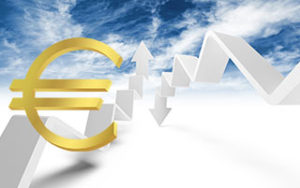A few years ago, no one would have thought that the Euro would be so close to parity with the US Dollar. Now, parity is increasingly looking like the new normal. Every indicator seems to support the race down to parity, and turmoil in the EU is only helping. Euro-Dollar parity however, is far from a catastrophe. Quite on the contrary it could give the EU’s largest economy – Germany – the boost it needs to keep on pushing ahead. That is something every member of the EU would like to see, although members of the monetary union might not necessarily see it that way.
Diverging Monetary Policies Strengthen the US Dollar Relative to the Euro
There is no doubt that a weaker Euro is an advantage for export led economies such as Germany. Therefore diverging monetary policies across the Atlantic should bode well for the EU’s main economic engine. It seems that the ECB is in no rush to follow the Fed with a rate hike or any other step to normalize monetary policy in the Euro block. Many would say that this is because Germany has disproportionate influence over the decisions that the ECB makes, but reality shows that Euro block economies beyond Germany might not be ready for a rate hike.
Debt and Disarray
This is due to the fact that economic growth in the Euro block is still anemic despite some improvement. Many of the Euro block countries also remain highly indebted. Any rate hike could choke the signs of economic recovery and make debt repayment spiral out of control. Deflation also looms in many of the Euro block countries, so a contraction in the money supply might exacerbate the situation. On top of these structural problems – that cannot be solved through monetary policy alone – the EU is in disarray. Important Italian financial institutions are on the brink of collapse due to liquidity issues, while populism is sweeping across the continent.
In the US the Economy needs Monetary Normalization
In the meantime, at the other side of the Atlantic, rate hikes are needed, especially if Trump’s plan to hike investment in infrastructure ramps up inflation. The effect of so called populism on both sides of the Atlantic seems to be radically different. The fact that populists in Europe tend to be Euro-skeptics, is one of the main reasons why Trump’s populism in the US strengthens the greenback whereas calls to dissolve the EU affect the Euro negatively. The Euro depends on Euro block unity.
Euro – US Dollar Parity Before 2017?
In the meantime Germany keeps reaping the benefit of a low Euro. If it can keep the EU in order – much like Chancellor Merkel has tried to do with varying degrees of success over the last 10 years – it will continue to benefit from the race towards EUR-USD parity. The Fed’s plan to hike rates further and more frequently going ahead, will keep the value of the Euro in terms of US Dollars down. The long shadow of those future Fed rate hikes might even push the Euro closer to parity before the year ends.



